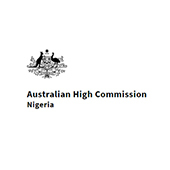South Africa’s rich endowment of gold, minerals, and base metals has long presented opportunities for competitive miners and mine engineering and technical service (METS) providers. Today ASX-listed companies are the largest foreign investors in South Africa’s mining sector. Australian companies are also the largest presence at South Africa’s annual “Investing in African Mining Indaba”. While Mining Indaba is normally held in Cape Town in February each year it was conducted “virtually’ in 2021 and attracted major and junior miners from Australia and around the world. Participants heard President Cyril Ramaphosa speak about plans to strengthen South Africa’s investment environment and create new business opportunities in mining and related sectors, such as energy, renewable energy, and the hydrogen economy.
But South Africa is not just about mining. South Africa is the most advanced, broad-based economy on the African continent. Today, services account for over 60 per cent of South Africa’s GDP while manufacturing accounts for a further 14 per cent. South Africa offers traders and investors a sophisticated industrial profile, a mature financial sector and highly developed transport and communications infrastructure.
Australian businesspeople are very active in South Africa. Australia is the seventh largest foreign country investor and Australian investment here increased 17 per cent to A$5.9 billion in 2019. Australian investment flows into South Africa are on par with our investment into Mexico, and exceed our investments in Chile, Thailand, UAE and Vietnam.
Strong bilateral investment flows between Australia and South Africa support significant volumes of trade in goods and services. South Africa is a top 30 trading country for Australia, and our largest trading partner in Africa. Two-way trade in goods and services in 2019 was worth almost $4bn. The trade relationship is fairly balanced, with Australia exporting aluminium and coal, and importing passenger motor vehicles. Australia’s trade with South Africa makes up around one per cent of South Africa’s total trade volumes.
Growth in trade and business opportunities between the two countries is supported by the Australian High Commission in Pretoria, the Australian Business Chamber of Commerce for Southern Africa (ABCSA), based in Johannesburg, the Australia Africa Chamber of Commerce (AACC), based in Melbourne, and Austrade, with three Business Development Managers and a Trade Commissioner based in Johannesburg. On 11 May, both business chambers, supported by the Australian High Commission and Austrade, sponsored a webinar which looked closely at South Africa’s Broad-Based Black Economic Empowerment (B-BBEE) policies and the investment environment. Speakers included B-BBEE Commissioner Zodwa Ntuli and Invest South Africa Head Yunus Hoosen. The webinar provided Australian investors and traders with valuable insights into the business environment in South Africa and is available on the internet here.
A recent report authored by professional services firm, PwC, ’10 insights into 4IR’ on mining in South Africa says there is increasing demand for digital technologies in mining in South Africa, as part of the so-called fourth industrial revolution (4IR). Challenges encountered during the Covid-19 pandemic have accelerated demand for innovation and automation in mining in South Africa. This includes demand for technologies that will help companies to increase efficiency, manage risk, improve health and safety and reduce maintenance costs.
There is also an opportunity for Australian Education providers to potentially work with Australian and other mining and METS companies. According to mining executives spoken to by Austrade, upskilling South Africa’s workforce is as big a challenge in the South African mining sector as technology adoption increases – opening up opportunities for Australian education providers that can specialise in increasing the skills and technical proficiencies of the South African mining work force.
South Africa has promoted itself as a base for foreign companies to set up Global Business Services and Australian companies have benefited considerably. Australian companies now make up 20 per cent of the market and have identified opportunities in the professional services, finance, e-commerce and communications sectors.
While Australia and South Africa are perceived as natural competitors in the agriculture sector, there are opportunities for research and development collaboration in agri-processing and agricultural services and technologies. There is strong interest in leading edge Australian research into the propagation of commercial crops such as macadamias and avocadoes.
Under its 2019 Integrated Resources Plan South Africa is looking to diversify its energy mix, including by increasing supplies of renewables, solar, wind, nuclear, gas, hydropower and cleaner coal. As a major source of platinum group metals, South Africa has developed a hydrogen strategy and plans to build a hydrogen fuelled transport corridor in the Northern Cape to take advantage of battery storage and related technologies. Australian commercialisation ready hydrogen supply chain technologies – such as innovative hydrogen storage and transport solutions, are likely to be attractive in market as this new industry emerges.
There will be research and investment opportunities as Australia and South Africa jointly host the Square Kilometre Array. This includes potential promotions at the annual Science Expo and the World Science Forum which will be held in Cape Town in December this year.
South Africa presents opportunities for Australian retail business exporters and innovative digital healthcare service and product providers. Innovative Australian companies able to offer digital healthcare solutions remotely will be attractive in market, according to a recent health care roundtable with the South African Medical Technology Industry Association (SAMED).
South Africa’s population is young with a medium age of 27.6 years. About 44.7% of the population is under 25 years with more women (50.5%) than men. According to a 2019 Next Gen survey targeting young consumers, despite most household spending resting with parents and older consumers, direct and indirect youth expenditure was calculated to be approximately $AUS12 billion annually in 2019. South Africa has approximately 18 million female consumers – often the primary purchasing decision maker within a household. They are discerning consumers of skincare, sanitary protection and shampoo and hair products and Australian companies that export consumer goods directed at women may benefit from their increased purchasing power and the population boom.
South Africa has also seen growth in the eCommerce industry which is the 37th largest market for eCommerce with sales of $AU5.2 billion in 2020. The growth in South Africa’s eCommerce market may provide opportunities for Australian companies looking at using eCommerce platforms in South Africa for retail connections to consumers or associated technologies in service delivery, such as ‘last mile’ logistics systems. The ecommerce market is projected to generate just over $AU 6 billion in sales in 2021 in South Africa.
South Africa is Australia’s gateway to Africa. It is the core member of the Southern African Customs Union (SACU) which enables duty free access between member countries. In addition, from 1 January this year, trading started under the African Continental Free Trade Agreement (AfCFTA) and will continue to enhance South Africa’s status as the preferred launching pad for business operations into Africa.
During his State of the Nation address, delivered in February, President Ramaphosa sought to shift South Africa toward a more growth-oriented posture while still focusing on measures to deal with the ongoing Covid-19 pandemic. While South Africa faces significant economic and social challenges it is driven forward by a young, educated and diverse population. It has deep people-to-people links with Australia and it offers good business opportunities to exporters who can bring unique and competitive goods and services to the market.



